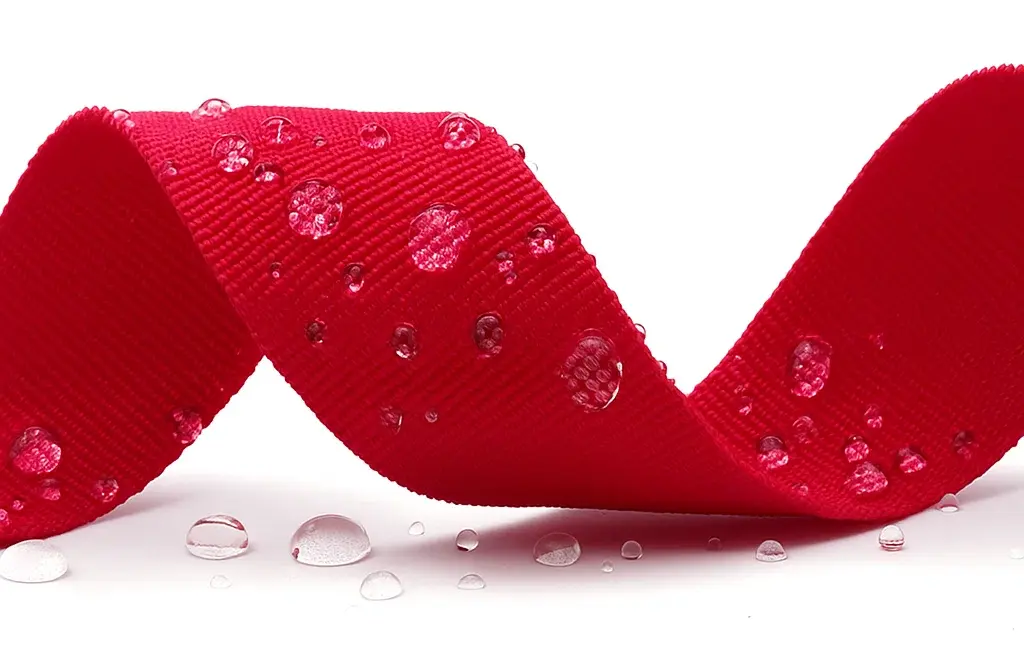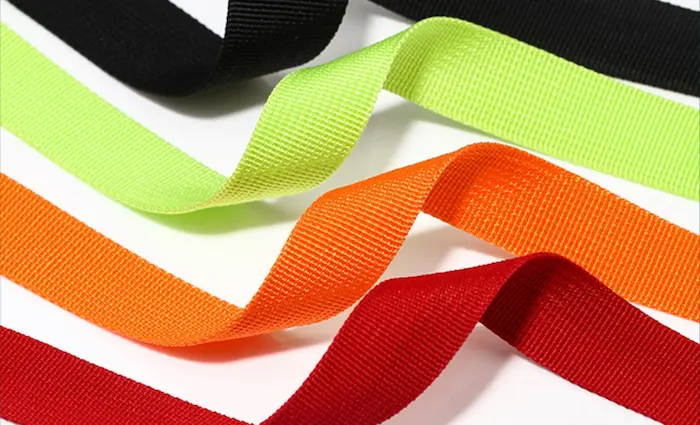In the world of webbing, Nylon and Polyester often take the spotlight for their high strength. However, for a huge range of applications, Polypropylene (PP) webbing is the smarter, more economical choice. As a leading webbing factory, we produce millions of meters of PP webbing for clients who need a reliable, cost-effective, and versatile material.
But how do you know if it's the right choice for *your* product? This guide will break down the specific advantages and limitations of PP webbing, helping you make an informed decision.
The Key Advantages: When to Choose PP Webbing
Polypropylene webbing shines in applications where its unique properties offer a distinct advantage. Choose PP when you need:
1. Excellent Water Resistance and Buoyancy
This is the standout feature of PP webbing. It is hydrophobic, meaning it does not absorb water. Unlike nylon, it won't stretch or lose strength when wet. It is also less dense than water, causing it to float.
- Perfect For: Life jackets, boat rigging, pool accessories, tow ropes for water sports, and outdoor gear used in wet environments.
- Benefit: Resists mold, mildew, and rot, ensuring a longer product life in damp conditions.
2. Unbeatable Cost-Effectiveness
Polypropylene is one of the most affordable synthetic fibers to produce. If you are manufacturing a high-volume product or working within a tight budget, PP webbing offers exceptional value without compromising performance for many common uses.
- Perfect For: Bag straps, general-purpose tie-downs, promotional items, and products where material cost is a primary driver.
- Benefit: Lowers your overall manufacturing cost, allowing for more competitive pricing.
3. Strong Chemical Resistance
PP webbing holds up well against a wide range of chemicals, including most acids, alkalis, and organic solvents. This makes it a durable choice for industrial or medical environments.
- Perfect For: Medical restraints, chemical handling straps, and industrial applications where exposure is a concern.
- Benefit: Ensures the integrity of the strap even when exposed to cleaning agents or chemical spills.
The Limitations: When to Avoid PP Webbing
To be a true manufacturing partner, we believe in honesty. PP webbing is not a one-size-fits-all solution. You should choose a different material if your application requires:
1. High Tensile Strength
While strong, PP webbing has a lower tensile strength and break point compared to equivalent sizes of Polyester or Nylon. It is not recommended for heavy-duty lifting, fall protection, or safety-critical applications like seatbelts or climbing harnesses. For those uses, Nylon or Polyester are the correct choices.
2. High UV Resistance
Standard polypropylene webbing will degrade over time with prolonged exposure to direct sunlight. The UV rays can make the fibers brittle and reduce their strength. While UV inhibitors can be added during manufacturing, for applications that will live outdoors 24/7 (like permanent cargo tie-downs), Polyester is a superior choice.
3. High Abrasion Resistance
PP webbing has a lower melting point and is less resistant to friction-related wear and tear than nylon. For applications involving constant rubbing against rough surfaces, nylon's superior abrasion resistance makes it a better option.
"Polypropylene webbing is the go-to material for water-based applications and cost-sensitive projects. Understanding its limits is key to using it effectively."
Quick Comparison: PP vs. Polyester vs. Nylon
| Property | Polypropylene | Polyester | Nylon |
|---|---|---|---|
| Strength | Good | Excellent | Exceptional |
| UV Resistance | Poor | Excellent | Good |
| Water Resistance | Excellent (Floats) | Excellent | Poor (Loses strength) |
| Abrasion Resistance | Fair | Good | Excellent |
| Cost | Lowest | Medium | High |

Conclusion: The Smart Choice for the Right Job
Polypropylene (PP) webbing is an excellent material when used in the right context. It offers an unbeatable combination of water resistance and low cost, making it the ideal solution for marine products, lightweight bags, medical devices, and a wide array of general-purpose straps.
The key is partnering with a manufacturer who understands these nuances. At TMG Webbing, we don't just sell webbing; we provide solutions. We'll help you analyze your product's needs to ensure you get the perfect material, every time.
Ready to see if PP webbing is the cost-effective solution you've been looking for? Contact our experts today for a free consultation and to request a sample!

